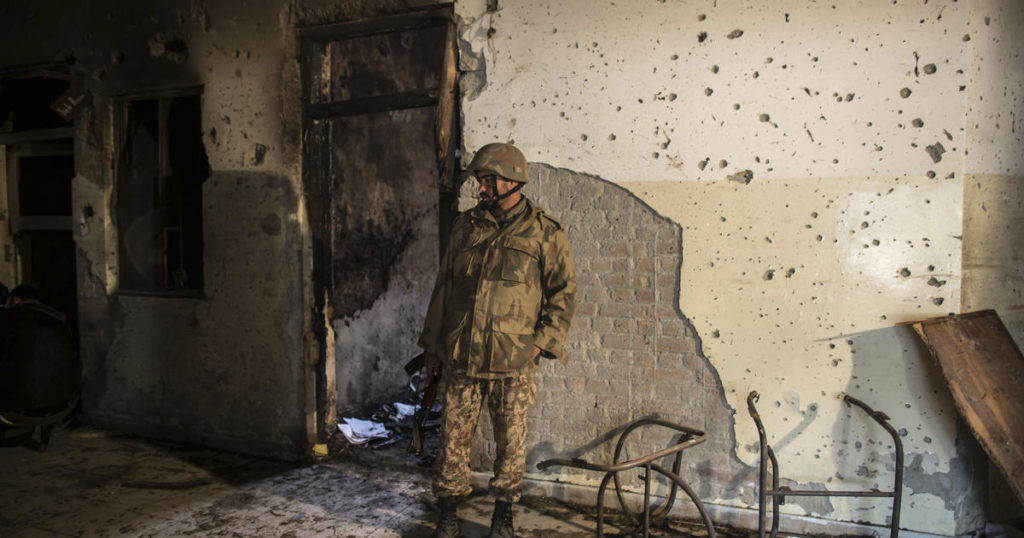Cornered in some pockets in difficult mountainous terrain by operation Zarb-e-Azb and without the space and freedom to move around, the militants are now incapable of launching any major attacks against the forces of law and order bringing peace to the area. Afghanistan Govt must take adequate measures to deny the militants opportunity of attacks to re-group on their side of the Durand Line.
Unless the momentum is relentlessly pursued, the factions could join hands together to fight the Pakistan Army. Like it was done successfully in Swat it is vital that the Internally Displaced Persons (IDPs) should go home, their rehabilitation is a gigantic effort requiring coordinated military and civil response. The civilian govt has been dragging its feet, without their support returning the IDPs to their homes by December 2016 is not possible. There is growing frustration among the Khakis that denial of resource availability will discourage the return of IDPs.
Failing to put up any coordinated resistance to the Army’s onslaught, precision attacks by the Air Force degraded the militant capacity to wage war. The “blowback” expected because of Operation Zarb-i-Azb has not materalised as severely as was thought before the start of operation. However instances of suicide and other specific attacks showed the militants’ continued resilience in our settled areas. While showing some results, the Govt’s 20-point National Action Plan (NAP) has not eliminated and/or eradicated the militant presence in the urban and urban-rural areas. The desired optimum “actionable intelligence” level required for in effective operations has only been possible on some occasions. This is giving time to militants to reorganize their splintered forces and resources, the impetus of Zarb-i-Azb is also likely to be affected by the oncoming winter season.
Weak governance is evident from the lack of civil judges, small number of courts and weak prosecution of cases causing delay in dispensation of justice. penchant of the courts to strictly follow the wording another than the spirit of the law was resulting in many terrorists and associated criminals from organized crime going free. Many arrested militants have not been brought to trial because of the witnesses have been unwilling to come forward given the lack of credible guarantees for their safety.
Good governance must not be confined to rhetoric or wishful thinking, it must become an article of faith. All public representatives and government servants must be impartial and fair in their dealings. Otherwise the public confidence in state institutions and the supremacy of law will never be restored. This is not a feudal society, the people must know that they have to be subservient to the law and not individuals. This can only be possible if citizens are considered equal in the eyes of law and treated as such; with no one permitted to act above the law. Only by making dispensation of justice more effective can this be done. Our esteemed Chief Justice Supreme Court (CJ SC), Justice Anwar Zaheer Jamali says we have an abundance of laws but its practical manifestation is lacking due to ineffectiveness of govt departments and because of that dereliction of duty there is in existence the parallel system of justice that the “Jirga” and “Panchayat” systems represent. One may add that out-of-the-box solutions must put Magistrates on duty around the clock at police stations to expedite justice at the local level and take the pressure off intermediate and higher courts.
Ensuring of basic human rights and social values must be in line with law. Only by providing justice at the doorsteps of the citizens can we restore confidence in our judicial process. Corruption leads to organised crime, this provides a culture of lawlessness. Local Bodies (LBs) must ensure that extortion from our hapless citizens looking for basic conveniences at that level is eliminated. Culture of violence and agitation on trifle issues must cease. Recently the CJ SC called for extraordinary steps to meet the worsening situation.

Despite the success of the Rangers in curbing target killing activity and curbing the ability (and penchant) of the militants to use their political power in the streets, a number of key decisions about the Karachi operations are being vacillated upon deliberately by the political leadership out of vested interest. After the Army Public School (APS) Peshawar terrorist incident, the military leadership and the civilian leadership were ostensibly on the same page, now it is clear that even the decisions approved have not been carried out. The PM himself has expressed his disappointment that elements of NAP that have long been identified as poor performing are still mostly un-actioned. These include elimination of terror financing; foreign funding of seminaries; proscribed organisations and sectarian groups; and madrassah reforms. Moreover the provincial mechanism for civil-military coordination on security issues too has been experiencing difficulties.
An ISPR statement after the recent Corps Commanders Conference held to review the country’s internal security situation, quoted the COAS Gen Raheel Sharif as stressing the need for “complementary governance” for progress in the fight against terrorism. What was surprising was the knee-jerk reaction of the PM’s aides and proxies. Foremost among the critics was Pakhtunkhwa Milli Awami Party leader Mahmood Jan Achakzai. Not surprising given that he has a vested interest in the survival of the Balochistan Govt having out at last 9-10 close relations in the govt, he called the ISPR statement against the spirit of the Constitution. One could not understand about what he meant when he said that any foreign policy made outside Parliament would not be supported by the House. Achakzai conveniently has mixed up “good governance” with foreign policy, or was it simply because the PM and his PML (N) inner circle were peeved about the Army Chief’s visit to the US? Would the Army Chief’s immediate “political boss”, Defence Minister Khawaja Asif, get the same level of attention about Pakistan’s security apprehensions in the US?
That perhaps is the greatest tragedy, that instead of recognizing the great sacrifice of our soldiers, the politicians fall back on rhetoric without substance out of a sense of inferiority complex. By trying to camouflage their failings by political rhetoric, they fail the Constitutional responsibilities that is the cardinal principle of democracy, “good governance”. And if somebody points that out in gentlemanly manner they react, maybe they should be made to be told so in the language that they understand? That crude language is quite possible if they continue to play politics with terrorism instead of getting on with good governance.




